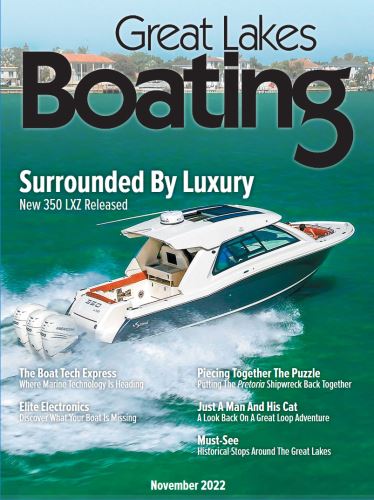.jpg_1600.jpg)
Two environmentalist groups filed a suit against the U.S. Coast Guard for having an inadequate response plan to protect the Great Lakes from potential oil spills, the Environmental Law & Policy Center reported on Aug. 22.
According to the report, the suit claims that the Coast Guard violated the Oil Pollution Act of 1990 (OPA 90) when it approved the Northern Michigan Area Contingency Plan (NMACP), thereby invalidating the portions that apply to oil pipelines in the Great Lakes — including the Enbridge Line 5.
Despite the U.S. Coast Guard’s certification that the NMACP is adequate to remove a worst-case discharge of oil into the Great Lakes, former Coast Guard Commandant Adm. Paul Zukunft testified under oath before Congress in November that the Coast Guard is not prepared for a major pipeline oil spill in the Great Lakes.
“The Great Lakes are where we live, work and play, and supply safe clean drinking water for 42 million people. If the U.S. Coast Guard is unable to fulfill its emergency response duties, then our Great Lakes waters are even more at risk from a potential Enbridge Line 5 oil pipeline spill,” said Howard Learner, Executive Director and attorney for the Environmental Law & Policy Center.
In 2014, Enbridge discovered dozens of damaged areas and sections missing protective coating on the pipeline but failed to report the violation to state officials.
Recently, environmentalist and advocacy groups have called for the pipeline to shut down because of its potential effect on the Great Lakes.
“Until we decommission this aging, risky pipeline, we need the best-possible spill response plan to protect our Great Lakes, our communities, our wildlife, and our economy,” said Oday Salim, staff attorney for the National Wildlife Federation Great Lakes Regional Center.
If the Court sides with the environmental groups, the pipeline could be forced to shut down.
“A worst-case oil spill from Line 5, even according to an Enbridge-funded study, could impact over 400 miles of shoreline and 60,000 acres of unique wildlife habitat as well as cause billions in economic losses and the irrevocable loss of wildlife and cultural resources,” Salim added.
For More Information
www.nwf.org

